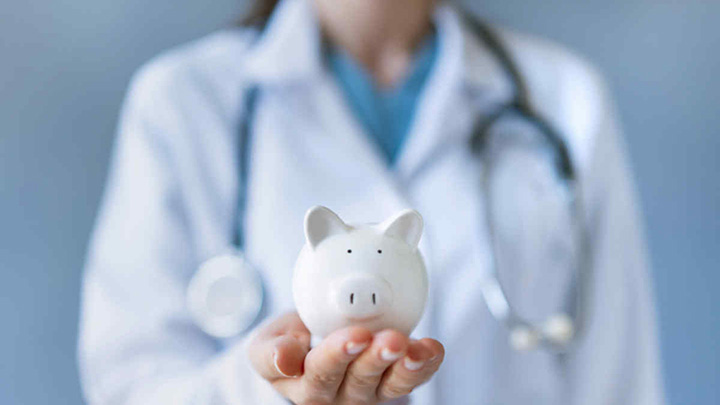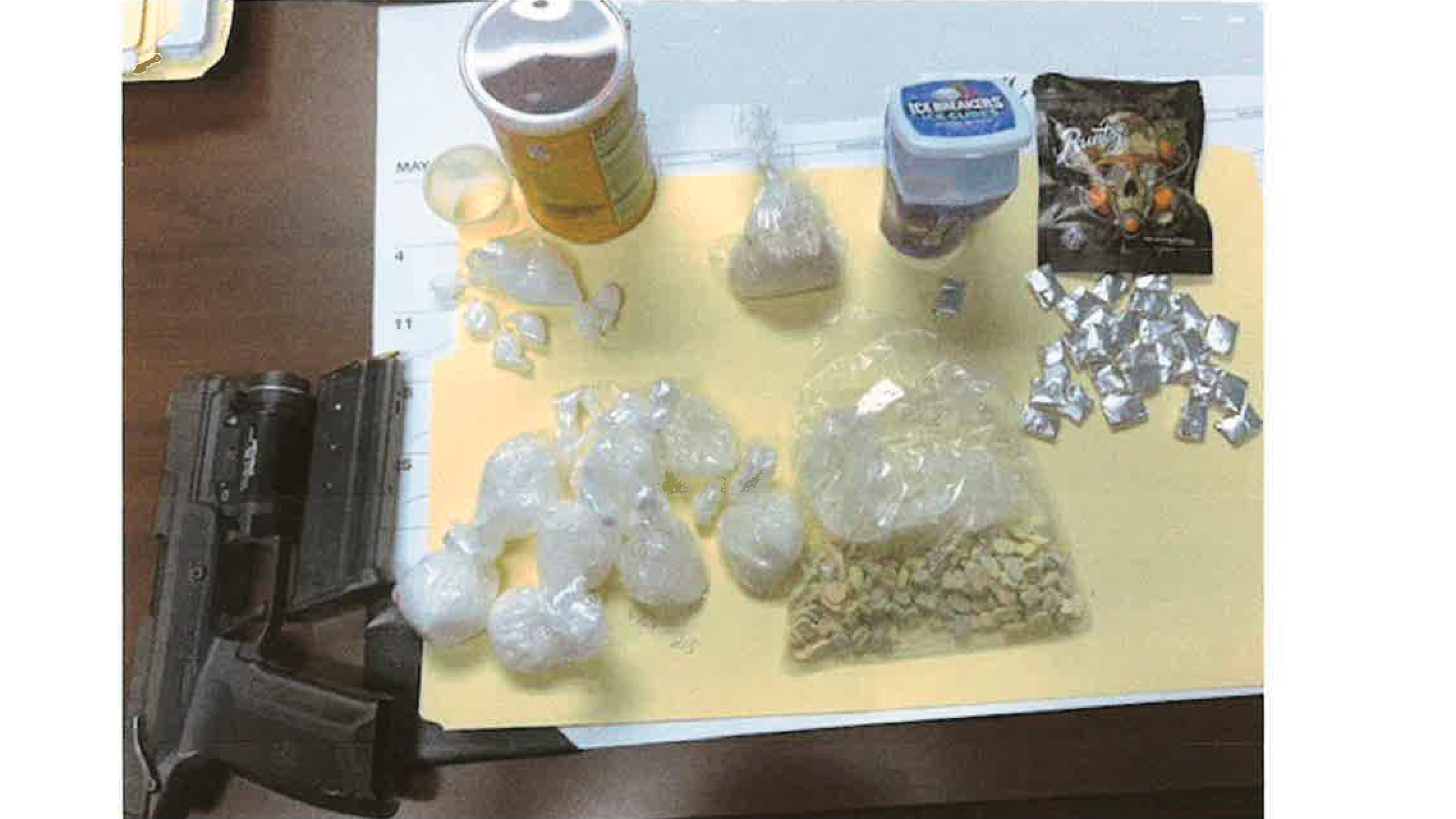COVID is going to cost you
Published 8:00 am Saturday, December 11, 2021
The COVID-19 coronavirus has impacted individuals in varying ways since its onset. Not only has it attacked the health of many individuals — especially those with greater risks, such as autoimmune disorders — its impact has been felt in patients’ wallets.
Insurance companies often pay a fraction of the costs of medical treatment, and — though tests and vaccinations may be fully covered — some are finding their insurer covers only a third of the cost of monoclonal antibody treatments. The treatments are given to some COVID-19 patients to aid in their recovery.
When the pandemic was at its height in 2020, many people read stories that seemed to imply the federal government paid for anything relating to the virus. Not so.
“Each health care facility has a contract with each insurance company,” said David Culpepper of KDMC. “Each of those policies can cover different things. They are negotiated out contractually as a ‘retail amount.’ Every single charge is generated though the contract and it all depends on your insurance.”
Culpepper said that testing and vaccines are supposed to be paid for by the federal government, but everything else is billed to the insurance companies. “You’ll end up paying $150-$200 for testing in an office visit, and that is not counting what your insurance says is your copay,” he said. “The federal government says it will reimburse hospitals for COVID care for those with no funds, but it’s only until the COVID funds run out. We can submit a claim, but that doesn’t mean it will be paid.
“We would never turn anyone away [who needed treatment], but the federal government has never picked up the costs. Insurance companies do, just like they do for a hospital visit of any kind.”
The Keiser Family Foundation reported May 26, 2020, that “COVID-19 treatment costs will depend on the type of coverage an individual has. Treatment costs may present a much bigger affordability concern for patients than testing. Although many people are able to recover on their own without treatment, those with more serious cases require hospitalization … [H]ospitalization to treat the symptoms of the disease could be very expensive, particularly for people who are uninsured or underinsured.”
KFF further stated that providers will be allowed to apply to be reimbursed by the federal government (through “the Emergency Fund”) for treating uninsured patients, though providers are not required to participate in the program and uninsured consumers are not guaranteed free care.”
Actually, it may be that those who are insured may find expensive bills headed their way instead. As the KFF report mentions, “if you have health insurance, it’s all up to the fine print on your policy — that fine print you might have missed.”
The University of Michigan website (visit https://bit.ly/3lxB8jV) offers a detail report on how costs can affect those who come down with COVID-19. An alarming part of the issue is that insurance companies are starting to charge members for hospital-related costs after waiving them last year.
A new UofM analysis, published in JAMA Network Open, said most health insurance companies voluntarily waived co-pays, deductibles and other cost-sharing for hospitalized patients in 2020, but many major insurers lifted those waivers this year: “Based on data from actual patients hospitalized for COVID-19 last year, the study suggests the lack of waivers could mean bills of about $3,800 for people with job-related or self-purchased private insurance, and $1,500 for people with Medicare Advantage plans.
“Many insurers claim that it is justified to charge patients for COVID-19 hospitalizations now that … vaccines are widely available,” the lead author wrote, but also mentioning that young children and those with underlying health issues cannot be vaccinated.
Researchers found that out of 4,000 COVID-related hospitalizations of those with private insurance or Medicare Advantage insurance between March and September 2020, “the vast majority of patients didn’t have to pay for hospital services such as room-and-board changes, suggesting their plans waived cost-sharing for bills sent by hospitals. However, among the few patients who did have to pay for hosptial services — a sign that a waiver wasn’t in place — out-of-pocket costs were in the thousands of dollars.”
The study found that it costs an average of $42,200 for each COVID-19 hospitalization covered by insurance and $21,400 for a patient with Medicare Advantage. Afterward, patients received bills from doctors who cared for them in the hospital, from ambulance companies that transported them and from other professionals who helped in their care.
KFF, which analyzed the status of waivers from the two largest insurers in each state, also found that 72 percent stopped waivers by August 2021, the University of Michigan reported. One doctor interviewed expressed concern that the threat of medical care bills might cause severe risks to those who need hospitalization.
The University of Michigan report said hospitals that received pandemic funding are barred from billing patients directly beyond what the person’s insurance covered.
Blue Cross Blue Shield, the insurance Betsy has, said that Betsy’s policy must not have covered her treatment completely and that fact would be reflected in her policy’s written description.
“Each Blue Cross and Blue Shield company is its own independent company and makes its own coverage decisions,” an emailed statement reported when asked about Betsy’s insurance coverage. “You’ll need to connect with the local BCBS company for information on their coverage policies.”
Privacy laws bar companies from giving out information on specific patients.
However, insurers didn’t have a clue that a global pandemic would come to fruition, which could mean each insurance company simply chose what to cover — or not — when considering COVID-19 hospitalizations and treatments. Betsy said when she called her insurance company to ask why her bill was not paid in full, the answer she received was, “That’s just how it is.”
A recent cross-sectional study used data from the IQVIA PharMetrics Plus for Academics Database, a national claims database representing 7.7 million privately insured patients and 1.0 million Medicare Advantage patients, to analyze COVID-19 hospitalizations for privately insured and Medicare Advantage patients from March to September 2020. The study analyzed 4,075 COVID-19 hospitalizations in 2020 and it showed that “71.2 percent of hospitalizations for privately insured patients and 49.1 percent of hospitalizations for Medicare Advantage patients had out-of-pocket spending for facility services, services billed by clinicians and ancillary service providers, or both … In contrast to COVID-19 testing and vaccination, there is no federal mandate for insurers to waive cost sharing for COVID-19 hospitalizations.”
A government department named the Health Resources and Services Administration reports on its website [at https://www.hrsa.gov/] that it is “providing support to health care providers fighting the COVID-19 pandemic through the COVID-19 Claims Reimbursement to Health Care Providers and Facilities for Testing, Treatment, and Vaccine Administration for the Uninsured Program (HRSA COVID-19 Uninsured Program).”
This program provides “reimbursements on a rolling basis directly to eligible providers for claims attributed to the testing, treatment, or vaccine administration for COVID-19 for uninsured individuals.” When an uninsured patient hospitalized with COVID-19 is either discharged or dies, the facility will send a request for reimbursement through the HRSA COVID-19 Uninsured Program.
Funding for the many programs involved in the HRSA COVID-19 battle include the following:
• The Families First Coronavirus Response Act (FFCRA) and the Paycheck Protection Program and Health Care Enhancement Act (PPPHCEA) each appropriated $1 billion to reimburse providers for testing for uninsured individuals.
• The Coronavirus Aid, Relief, and Economic Security (CARES) provided $100 billion in relief funds to hospitals and other health care providers.
• The PPPHCEA appropriated an additional $75 billion in relief funds.
• The Coronavirus Response and Relief Supplemental Appropriations Act (CRRSA) appropriated an additional $3 billion.
Collectively, these are called the “Provider Relief Fund.” A portion of this funding supports health care-related expenses attributable to COVID-19 testing for the uninsured and treatment of uninsured individuals with COVID-19. A portion of the funding is also used to reimburse providers for administering Food and Drug Administration (FDA)-authorized or licensed COVID-19 vaccines to uninsured individuals.
The American Rescue Plan Act of 2021 also allocated funding to reimburse providers for COVID-19 testing of the uninsured. However, as Culpepper said, the funding “runs out.” How that is decided — when there is no more money to reimburse facilities — is unknown.
Betsy and her doctor don’t know whether Betsy needs to get vaccinated after her mild bout with COVID-19 earlier this year. They worry how her body will react. Plus, Betsy wonders that since she already had the virus, why now get vaccinated?
“There is a small percentage of the population with autoimmune diseases who should carefully consider whether to be vaccinated or not; it all depends on their specific illness,” Betsy warned, saying she has not decided whether to get the shot.
“There is so much conflicting information out there.”
About who will pay, too.





